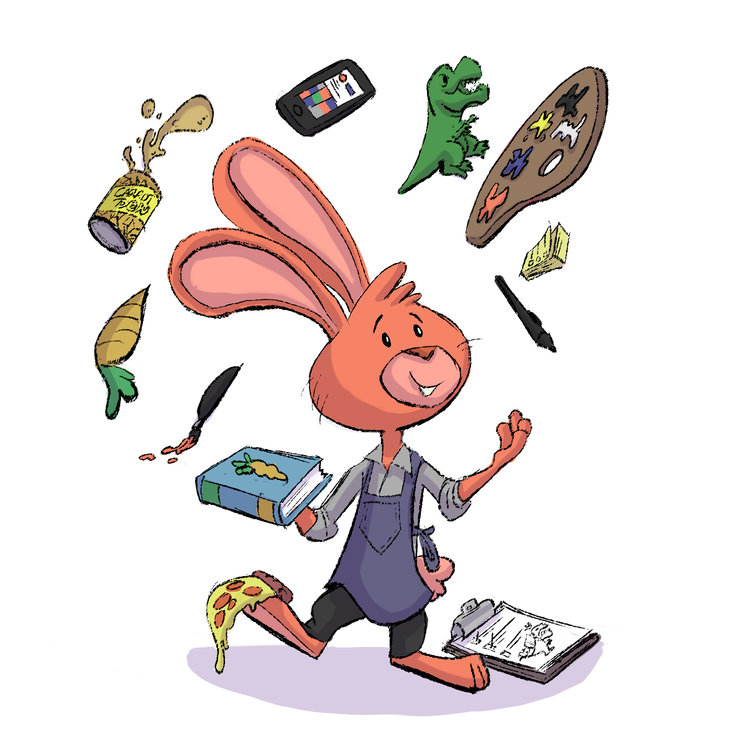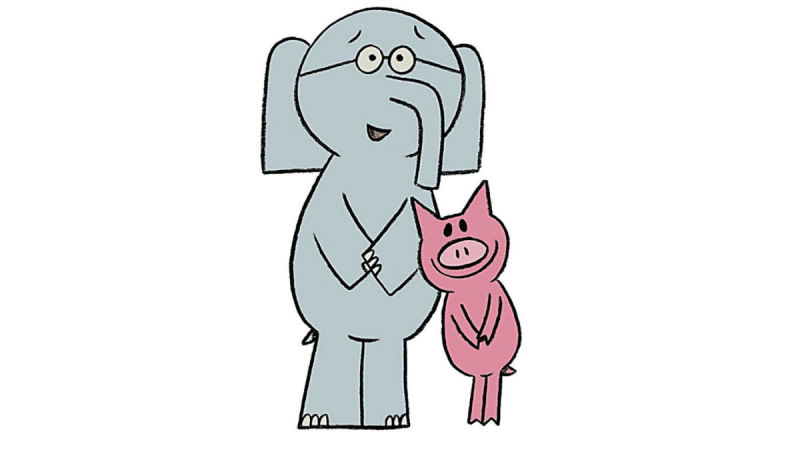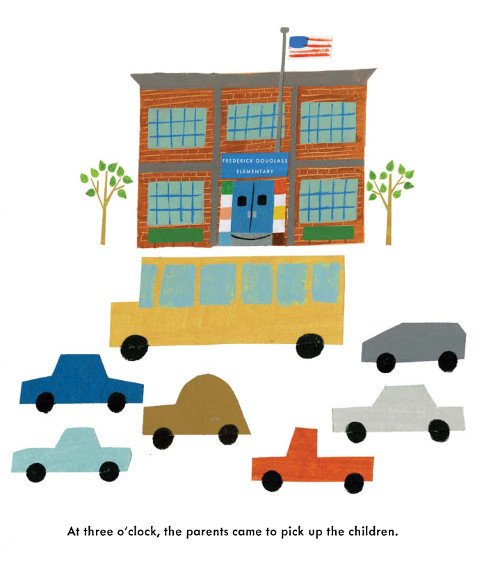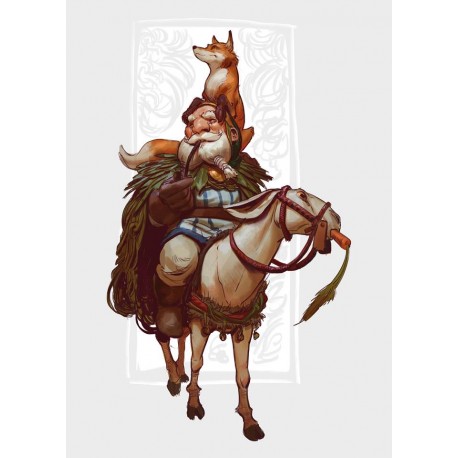10 Skills Every Illustrator Must Have
-

Art by Tanner Garlick
Most people think that in order to be a great illustrator you need to just be a great artist and storyteller, that's true. However, there is a lot more that goes into being a stellar illustrator and a more well rounded person. In this episode we'll go over 10 important skills that we all need to be developing, and we'll go over some of the reasons why they are all so important, and share some techniques and tips for improving your skills. "Art directors only want illustrators with great skills!"Today is the last day of this year's Inktober, thank you all for any participation you had with this fun worldwide challenge, and for all the support you give us. Hope you enjoy this episode! Love the dialogue and conversations here in our forum. Enjoy! It's up and ready to listen. You can click here to listen to it!
-
Hey Guys! I just love your podcast!
That is what brought me to SVS and I find your courses super useful, just the things that I wish somebody told me at Uni when I was studying fine art...
PLUS, you make me giggle half of the podcast, which is more than a bonus!
I find that even if a little, my illustrating skills are improving already with all you advices and it's always very interesting what you say!
PLEASE KEEP GOING!
Lucia -
My next children's book will be titled Pamplemousse. :face_savouring_delicious_food:
-
@jake-parker I can really resonate with one of the points about personal work creating opportunities or future work. That was exactly what happened fo rme recently. I had done some portrait painting for christmas presents and gifts for family and friends and a year or two later I was commissioned to do portrait work with those images from my website used as reference.
The other point I found interesting was that it helps to figure out what style you have - you mentioned there will be an episode about that later. I will be looking forward to that one, as I feel like i don't have a style, rather have been experimenting with lots of different ones and trying to master them all. Hopefully it's not to the detriment of creating a unique style to be attractive to a publisher. -
I’m with Will about teaching. It pushes you to become a better artist and helps you analyze why you make certain marks. I certainly don’t teach in an school setting. I’ve only had private students most of my life. I think I started teaching when I was in high school? Maybe a freshman in college? It has always been younger kids until recently. Now I teach my friend and her middle schooler. I had to brush up on technical drawing and painting each time I started new students. And students are awesome!
-
Why is Will putting ideas in their heads? $1000 pen? xD
We truly are the average of the 5 people we spend the most time with. That's why we should hang out with people from different backgrounds and with ambitious people who love to learn. I admire Simona's work! I'm not there yet but I also have a goal to turn my website and my portfolio around by 2019. already making progress through the year.
I can really see the importance of personal projects and having an online presence. My first digital painting ever in 2016 got me hired by a local animation studio to create unwrap portraits for their 3D characters! only 3 months after I uploaded it
 It was a portrait of Jack Nicholson and the guy wanted someone to create wrinkles for 1 of his characters so I was hired. He found me on Behance. The same happened with writing for a magazine dedicated for Arab designers. Since you mentioned having several skills. I was just listening and nodding my head "true true" xD
It was a portrait of Jack Nicholson and the guy wanted someone to create wrinkles for 1 of his characters so I was hired. He found me on Behance. The same happened with writing for a magazine dedicated for Arab designers. Since you mentioned having several skills. I was just listening and nodding my head "true true" xDCurrently, I'm working on leveling up my character design and coloring skills. Hopefully this will show when I color my Inktober story.
-
Great episode as always. I just want to binge-listen to you guys talk about anything and everything :)))
-
I was interested to hear the topic of persuasiveness come up because I am honestly fascinated by how much this is part of businesses today. The whole advertising industry, for example, relies on the fact that wording things a certain way makes us feel a certain feeling in relation to a product or service.
I'm also fascinated by the idea that society can be seen as being made up of three protagonists per se: institutions (like businesses, agencies, government, etc.), individuals, and communities. Each is deeply tied to the other, and ideally, each should support and serve the other. It seems like a weakness in society today is that these protagonists are distrustful of each other, and all three suffer because of this.
I think that one way we can contribute to weaving these three protagonists closer to each other, thereby strengthening the very fabric of society, is by not considering our "individual/personal" life as different from our "work" life. Work may deal more with a community of people or clientele who we don't know on a personal level, or it may deal with a company or organization that we feel has no soul of its own. But without the bigger picture in mind of how society is strengthened by trust between these three protagonists, I tend to approach my professional connections with people in a different way.
I wouldn't try to make a close friend see me as more or less accomplished than I really am because it might damage our friendship when the truth came through. Could the same be true for a professional relationship?
I may be the only one in this boat, so please feel free to share your own views in contrast to this, but as individuals working with clients and companies, wouldn't complete truthfulness in all matters have a strengthening effect in the long run? I just worry that even in an instance where my approach might be to come across as busy (which I'm not hating on you guys for, I promise!), I might not perform to the standard that I would if I actually had the amount of experience and practice that a truly swamped artist would have, which might let my client down in the end. I'm genuinely interested in your thoughts guys, because I want to better understand where people are coming from who do this.
Also, I've been meaning to say somewhere that I think the amazing culture on this forum, where people are extremely considerate of each other compared to other places on the internet, has to do with the example set by Will, Jake and Lee. You guys are great people, and it's rubbing off on a whole generation of artists. Deepest gratitude for what you all do.
-
@kathrynadebayo I haven't listened to the podcast yet, so this may not be pertinent. But I wanted to tune in on the concept of "accomplished".
Here are three images. Which one comes from an "accomplished" artist?


Answer: all three. The first is from Mo Willems - three (or more?) times Caldecott winner and one of the most successful artists and authors in the children's publishing space. The second is from Adam Rex - another best-selling children's illustrator. The third is from Even Mehl Amudsen - a professional concept artist.
So when are you accomplished? Skills and style have more to do with your personal development as an artist but not so much with being a "professional". To a big extent it has to do with how you act. If you act professional, keep deadlines, deliver on spec, be friendly and invested in the project, value your art and your time....then you can call yourself a trustworthy and reliable partner. -
@smceccarelli Actually out of the 10 skills they talked about, none where related to the quality of the artwork. It was more talking about non-art skills that accomplished artists seem to exhibit. You should definitely listen to it, you were mentioned by name in it several times hihi
-
@smceccarelli I love the examples you gave. What you said about accomplishment having to do with character and professionalism really resonates with me.
-
I'm still not through this podcast, but I just listened to their discussion of Teaching as one of the things an illustrator must have/do and had some thoughts to share, because I think I have a bit of a unique perspective and experience on this topic in particular.
I consider myself to still be barely starting my illustration career. I have only one client who regularly hires me for work and they're not even in my target industry... so I could argue that my career hasn't really started yet.
I just finished teaching my first official art class last week, and it was an awesome experience in many ways. And I feel like I was fully qualified to do it, too, despite my lack of work experience.
I understand why @Lee-White argued that you need '5 years of experience in the field' before becoming an official teacher. Like @Will-Terry implied, I think the problem is that he was defining "teaching" much too narrowly. I made the same mistake not very long ago.
You see, teaching art has long been a piece of my dream career. It's always been something that I've been interested in. For example, I read beginners How-To-Draw books even when I already know the basics of how to draw, just to see how they break things down and to discover new approaches. So not only doing art, but TEACHING art, is very interesting to me.
For a few years after graduating, I put off this piece of my dream career because I knew the "right" way to do it--I needed professional experience first! Who would want to learn from me otherwise? I looked at the classes and teachers at my college, here at SVS, and elsewhere and said, no way can I teach--I'm not near that level!
But last year I had this epiphany--Of course I'm not qualified to teach at the level of the classes I'm interested in taking. (Or even those I just barely completed!) The very reason I'm interested in taking them is that they are skills I have not yet mastered.
BUT.
There are skills that I HAVE mastered that I CAN teach, which I am entirely qualified to teach. Classes that are completely off my radar because they teach skills I already have. Not only that, they are skills I believed that people would be interested in. Namely--the more basic foundational drawing skills.
So, I started looking for ways and means to teach an actual drawing class--not in just a hypothetical "wouldn't it be nice someday" kind of way, but trying to find a location (my home is too small), create an actual curriculum, etc.
I applied to teach through a nearby Continuing Education program like most school districts in the U.S. have. My proposed class outline was happily accepted ("We're always looking for more art classes to offer! People love them!").
Long story short, all 12 available seats for my Drawing Fundamentals class were filled. My original class outline was completely re-written as the class progressed. By the end of the class, every student was better able to draw what was in front of them than they had been when the class started. Interestingly, while their successes were gratifying, their mistakes were incredibly interesting and taught me more about why people have a hard time drawing what they see. (Which is why I would argue that @Jake-Parker 's "How To Draw Everything" isn't really an entry-level drawing course, its more like level 2, but that's a whole 'nother discussion.) And most of them asked me when my next class would be and what material would be covered, saying they would sign up when it became available.
So next semester I'm teaching Drawing Fundamentals TWO nights a week, and next fall I will also have a painting class available.
All this without "experience in the industry".
And really, this was more structured than teaching even needs to be. Even explaining a little bit of what you're doing to a stranger who watches you while out sketching counts as "teaching" in my book. Getting those processes out of your head into words that other people can understand is SO BENEFICIAL--to everyone involved. You will know those things better than you did before.
So I gotta agree with Will on this one. Teaching in some capacity--whether in the traditional way we usually think of or something much less formal--is important for improving your craft. I guess you probably get along without it--but its such a great short cut I don't know why you would want to.
ETA:
And a tangental thought--Who knows how long it will take me to "break in" to Childrens Publishing--it takes people years, decades even! I can send postcards and go to conferences etc etc etc, but I have a limited amount of control over when I'll first be hired by and Editor or AD. Why put all my career dreams on hold for something I have so little control over, when this is also something I want to do, which I also happen to have a LOT of control over? I CAN do it, so I am. No obnoxious gate keepers have to give me permission to do this--not even you and your 5 year rule, @Lee-White



-
This podcast touched on something in my former world--classical oil painters who can't seem to modernize. The comment about parasols made ma laugh, because sometimes it used to drive me crazy as well. Dressing people in bustles and parasols can look contrived, but I think part of the idea is to allow for drawing drapery (a lost art if there ever was one!) and an attempt to be timeless. Problem is, whatever you try fits into a historical timeframe whether you like it or not, so you might as well lean into it!
That said, while some classical realists come across as cheesy, others do really amazing work. And I think it's a good thing that someone is still passing on the fundamental skills of how to handle oils, because I sure didn't learn about them in school, suspect many other people don't either, and they're hard to master!
-
@sarahluann Very good analysis! I often listen to what I say on youtube or our podcast and cringe that I didn't explain my position better. Yes - teaching is a broad term with many levels and that's what I meant to say. That starting out teaching someone below your level forces you to think differently - thinking differently creates new opportunities for epiphanies - teaching makes you better. Thank you
 ( Also, Lee is wrong)
( Also, Lee is wrong) -
Great episode as always but it was certainly controversial at my house with the swings at Frazetta, James Gurney and illustrative fine art XD
-
@will-terry
 @ Lee is wrong
@ Lee is wrong
I actually understand where each is coming from so you both make valid points. -
@nessillustration @smceccarelli , Yes Simona, You were gushed over
 . Very appropriately so, I might add. I'm glad that you posted those three artists as accomplished. I have been having a minor existential crisis of late tied to that exact topic. As a good little student I have been pouring over children's books. Trying to learn what exactly publishers are looking for. They are ALL different! And what is completely blowing my mind is that a lot of what I'm seeing does not seem to be living up to my standards of what I'm pushing myself to accomplish. For example, today I saw a list of the top 2018 children's books. I scrolled through the images from the books listed and there was one in particular that, had I painted it and posted it to our SVS forum for critique, I would've gotten REEMED. The proportions were way off. It was very flat looking in some spots but not in others. The composition wasn't great. I just can't wrap my brain around it. There are some VERY great books out there, with awesome illustrators that just blow it out of the water on every page, but then I see a list like this and I'm just so confused.
. Very appropriately so, I might add. I'm glad that you posted those three artists as accomplished. I have been having a minor existential crisis of late tied to that exact topic. As a good little student I have been pouring over children's books. Trying to learn what exactly publishers are looking for. They are ALL different! And what is completely blowing my mind is that a lot of what I'm seeing does not seem to be living up to my standards of what I'm pushing myself to accomplish. For example, today I saw a list of the top 2018 children's books. I scrolled through the images from the books listed and there was one in particular that, had I painted it and posted it to our SVS forum for critique, I would've gotten REEMED. The proportions were way off. It was very flat looking in some spots but not in others. The composition wasn't great. I just can't wrap my brain around it. There are some VERY great books out there, with awesome illustrators that just blow it out of the water on every page, but then I see a list like this and I'm just so confused. -
@burvantill @KathrynAdebayo I did listen to the episode yesterday
 They must have recorded it on the same day Will interviewed me, so he had my ramblings fresh on his mind. It was, as usual, very interesting. The discussion on teaching really touched me, especially after what @SarahLuAnn posted about her experience. Honestly, teaching is not something I would ever classify as amongst my goals, but I do recognize how much everybody wins from it and it was enlightening to see it listed among what Will thinks are 10 fundamental skills - I can see how it fosters growth all round.
They must have recorded it on the same day Will interviewed me, so he had my ramblings fresh on his mind. It was, as usual, very interesting. The discussion on teaching really touched me, especially after what @SarahLuAnn posted about her experience. Honestly, teaching is not something I would ever classify as amongst my goals, but I do recognize how much everybody wins from it and it was enlightening to see it listed among what Will thinks are 10 fundamental skills - I can see how it fosters growth all round.Anyhow, back to the “accomplished” discussion. What you mention is, I believe, a very common thought when looking at the picture book market. Still, after some studying, you start to see the difference between the work of an established professional - no matter what the style is - and the work that is “on the way” but not there yet. I don’t think you can see it in your own work, but you can spot that quality even in the most primitive of styles. I don’t know what it is...sense of design, consistency of shape language, the sense that the work is “finished”, the feeling that the artist knows what he´s doing and he´s expressing himself clearly and boldly. It´s not a technical skill or not only technical skills, for sure. I think it relates to art as a form of communication beyond words: the message feels clear and authentic regardless of the language used.
Also - and related to that - I´ve tried to work in a primitive style or ignore perspective or go for a very simplified look. I think everybody should try to make art in those styles once in a while. You definitely learn a thing or two about technical skills...but you also learn what is “you” and what isn’t, which is more important. And if it´s not in you - if you don’t have fun doing it - then it doesn’t matter if it sells books. That´s not what to strive for. You strive for being the best yourself you can be - I think that´s the only success recipe there is.
Getting way too philosphical here....this forum does this to me sometimes
-
@smceccarelli 'I´ve tried to work in a primitive style or ignore perspective or go for a very simplified look. I think everybody should try to make art in those styles"
Very good point. That is something I am trying in learning to paint "plein air". My water color is very structured and its quite challenging to loosen up. I am learning and I think it will help me grow in the long run.

-
@will-terry you are wrong about me being wrong!